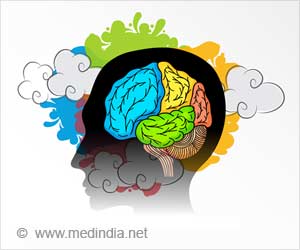Depression could be a factor in preventing stroke patients from returning to work early, a joint Australia-New Zealand study shows.
Researchers at the George Institute for International Health, Sydney, found as many as 64 per cent of those who had not returned to work for six months had suffered post-stroke depression."There is some evidence that antidepressants work in post-stroke depression, and there are indications that we may be able to prevent depression with psychological intervention, such as cognitive behavioral therapy-style motivational interviewing," lead author of the study Dr Nick Glozier Glozier said.
In the study, only 30 per cent of people with post-stroke depression had received any treatment six months after their stroke. Patients were also less likely to return to work if they worked only part-time prior to the stroke, and were of non-European ancestry, according to the study.
"If family members pick up on someone being depressed after a stroke, ask the physician to assess them and intervene if necessary," Glozier said. "Post-stroke depression can be successfully treated, and treatment can help the patients, their families and society."
Anyway that up to 55 per cent of those studied returned to work within six months could be a matter of satisfaction.
"It can be quite heartening to families and clinicians that more than half of stroke patients go back to work," said lead author Dr Nick Glozier of The George Institute. "But physicians should continually assess patients’ mood after stroke, because it’s an important predictor of whether patients will go back to work."
Advertisement
"A striking number of people have strokes when they are of working age, and returning to employment is vital to their well-being and role in society. Since younger adults have responsibilities for generating an income and supporting family members, return to work is a key goal in recovery," he said.
Advertisement
The other strong predictor of not returning to work was physical disability. A week following their strokes, patients were assessed with the Barthel scale, which rates the ability to independently perform basic self-care and daily living activities. Of those working at six months, 71 per cent had been rated as "independent" on the Barthel index. In contrast, of those who did not return to work, only 32 per cent had been rated physically "independent."
"If someone is functioning pretty well after a stroke, ask about vocational rehabilitation. Stroke guidelines from various countries identify vocational rehabilitation as a priority research area, but they don’t have the research evidence to make firm recommendations, so this aspect of post stroke care can be hit and miss," Glozier said.
The team has reported its findings in Stroke: Journal of the American Heart Association.
Source-Medindia
GPL/L











